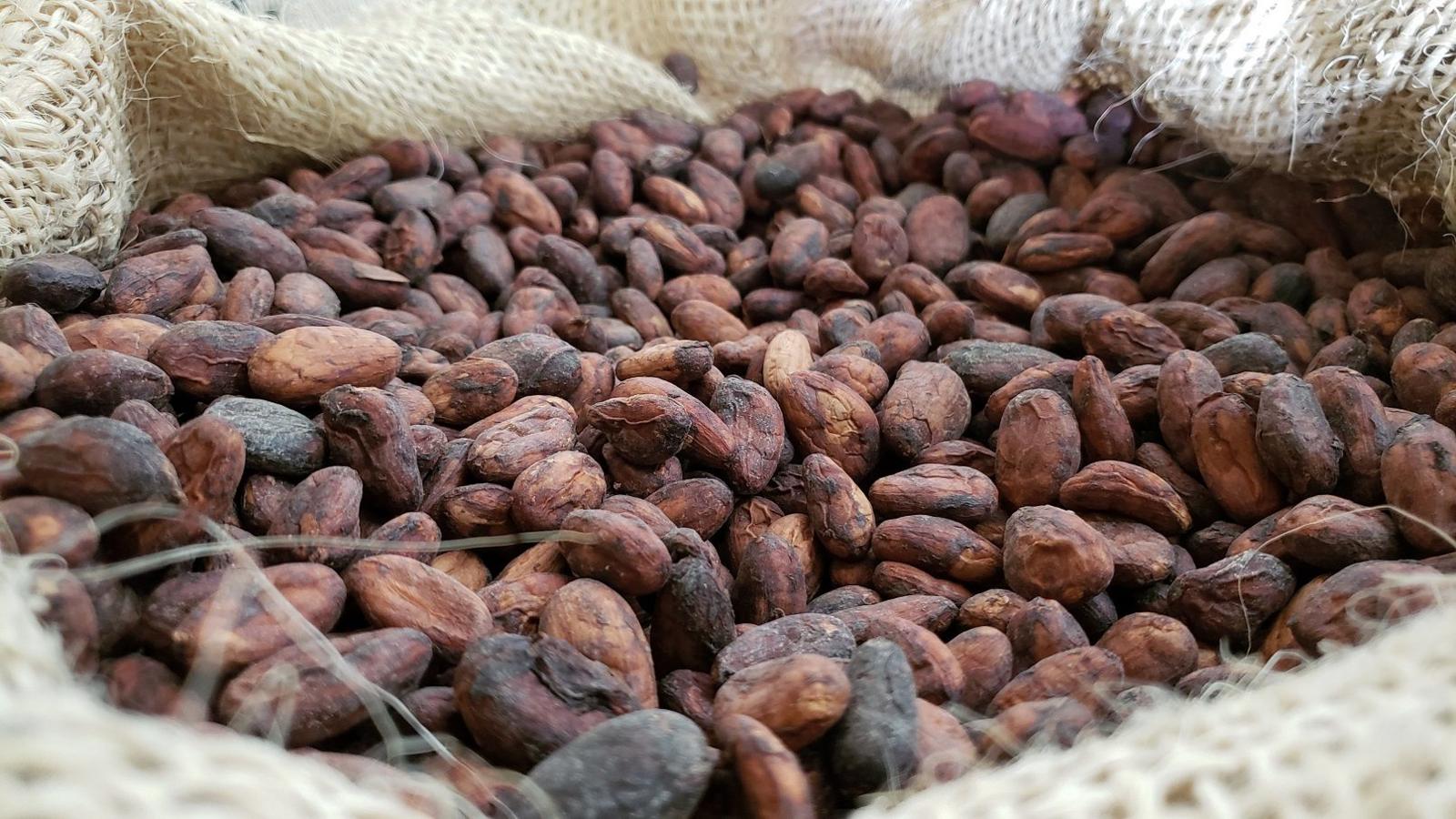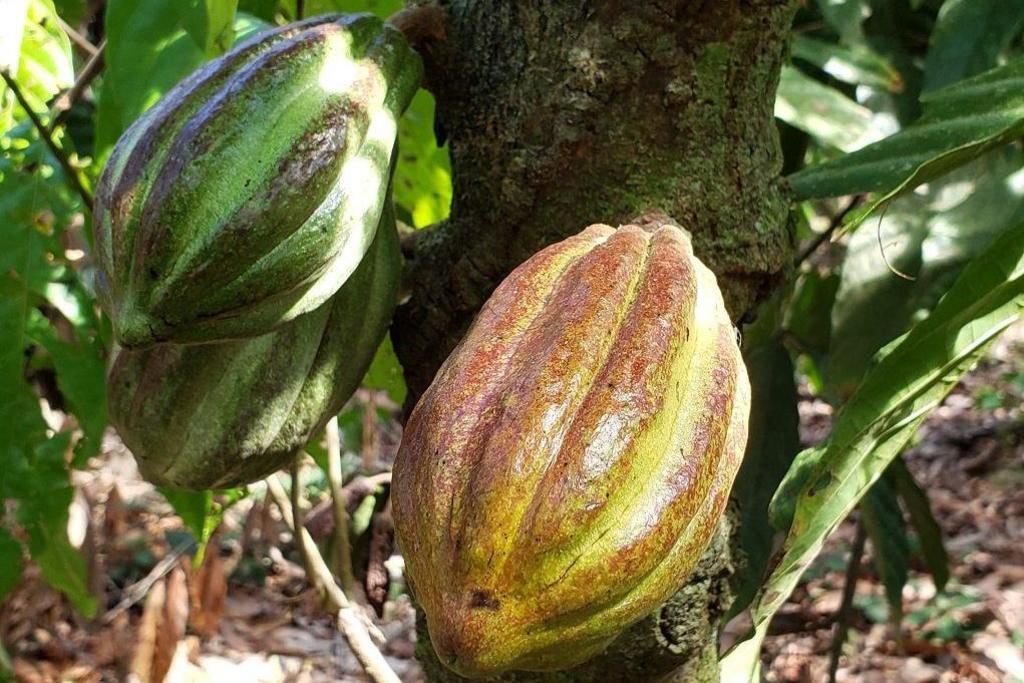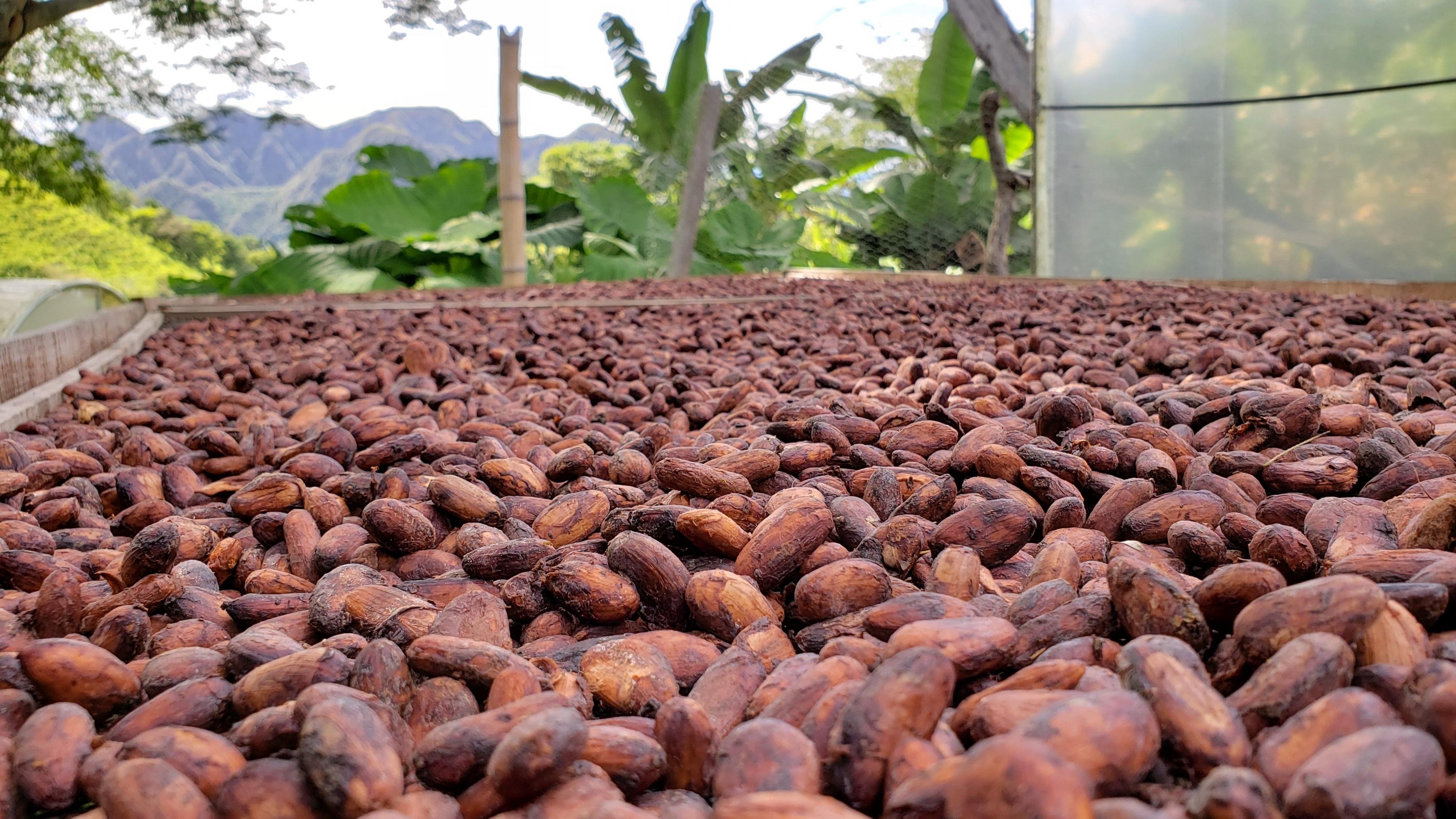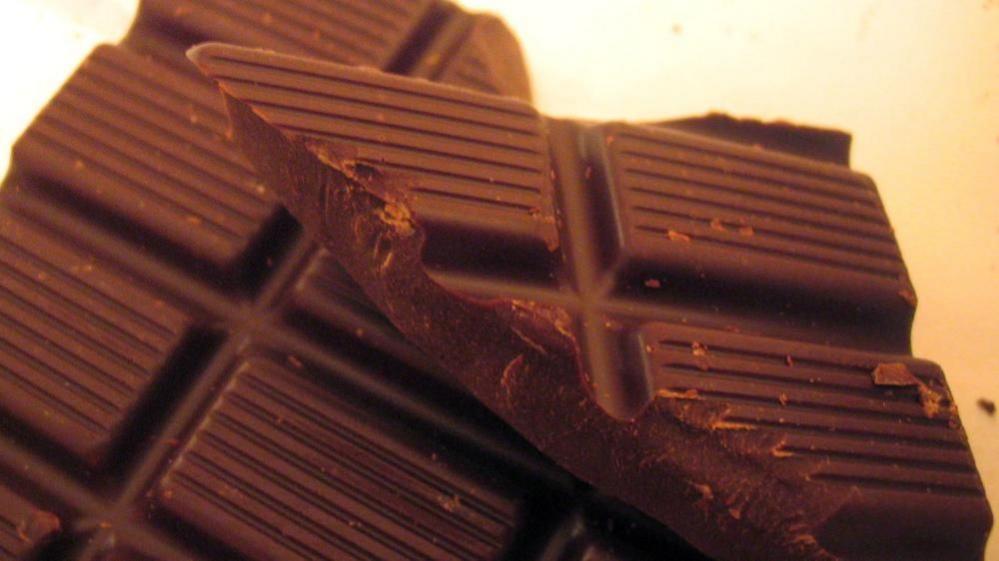Scientists find route to chocolate 'perfection'

Cocoa beans are traditionally left in boxes or sacks out in the field to ferment
- Published
Scientists claim they have finally cracked the code behind the perfect chocolate flavour - and their findings might surprise you.
The sweet treat is made using cocoa beans, which are harvested from trees and left to ferment for five to seven days, before being processed.
But new research has concluded it is the microbes, not cocoa genetics, that hold the key in shaping the flavour.
Dr David Gopaulchan, from the University of Nottingham's school of biosciences, said their research would allow for chocolate to be made with a "consistent quality and flavour profile".

Dr David Gopaulchan was one of the authors of the research paper
Dr Gopaulchan said the inspiration for the research, published in Nature Microbiology, external, came from his time working previously at the Cocoa Research Centre in Trinidad.
"They would often have leftover chocolate, and I would get to taste them, and while experiencing this I'd be tasting chocolates from Madagascar, from Ecuador, from Peru.
"There were clear differences in what the chocolates tasted like... so the question was, what was driving this difference in flavours?"
He said the conventional wisdom at the time was this flavour difference was down to genetic differences in the cocoa grown between different regions.
However, he said that this "wasn't adding up" because the same varieties would develop different flavours when grown in different regions.

Cocoa trees usually thrive best in climates around the equator
This led the research fellow to conduct a study in Colombia, working with three different chocolate farms in the regions of Santander, Huila, and Antioquia.
"What we knew from before is that if you do not ferment your beans, your chocolate would taste nothing like chocolate," Dr Gopaulchan said.
"The other thing we knew was that fermentation is really driven by microorganisms."
To discover what happened during this fermentation process, the team used DNA sequencing to analyse which microbes were involved, as well as analyse the chemical changes in the cocoa beans.
He said they found the chocolate from Antioquia had a "quite different" taste from the other two regions, and also found it had a relatively different composition of microbes.

Field research took place between 2019 and 2020 but the research paper has only just been published
This fermentation process was then replicated in a laboratory after isolating the microbes from the environment and adding them to freshly-harvested cocoa beans.
"What we saw was that the beans started to ferment, just like what we would see in the field," he said.
Dr Gopaulchan said the change in the chemical composition of the bean aligned with what was seen in the field, with an increase in temperature and decrease in PH levels.
But in addition to that - the taste of the resulting chocolate had also been replicated, which was "quite amazing".
"That bit of the experiment was a proof of concept to show we can now replicate a very ancient process that is very wild, right? It's uncontrolled. It's happening on farms by millions of farmers across the tropics.
"We can now replicate this in a consistent way to give us a consistent quality and flavour profile."

The ability to control the fermentation process means the "flavour notes" of chocolate can be controlled
The ability to control the final flavour notes of chocolate will be "quite disruptive", according to Dr Gopaulchan.
"The [chocolate] industry right now has no control over fermentation," he said.
"This research opens up the door to these companies being able to produce a flavour profile that's unique to their company and consistent every single time."
However, he admitted he was uncertain how this would be rolled out commercially.
"I think at the very least what we are showing is that this is not a mysterious process, we've kind of moved back the curtains on what was a mystery before, and showed we can actually control flavours now," he said.
He added it would now be a "possibility" for someone to curate themselves a "perfect" chocolate flavour by controlling which microbes ferment the cocoa beans.
Get in touch
Tell us which stories we should cover in Nottingham
Follow BBC Nottingham on Facebook, external, on X, external, or on Instagram, external. Send your story ideas to eastmidsnews@bbc.co.uk, external or via WhatsApp, external on 0808 100 2210.